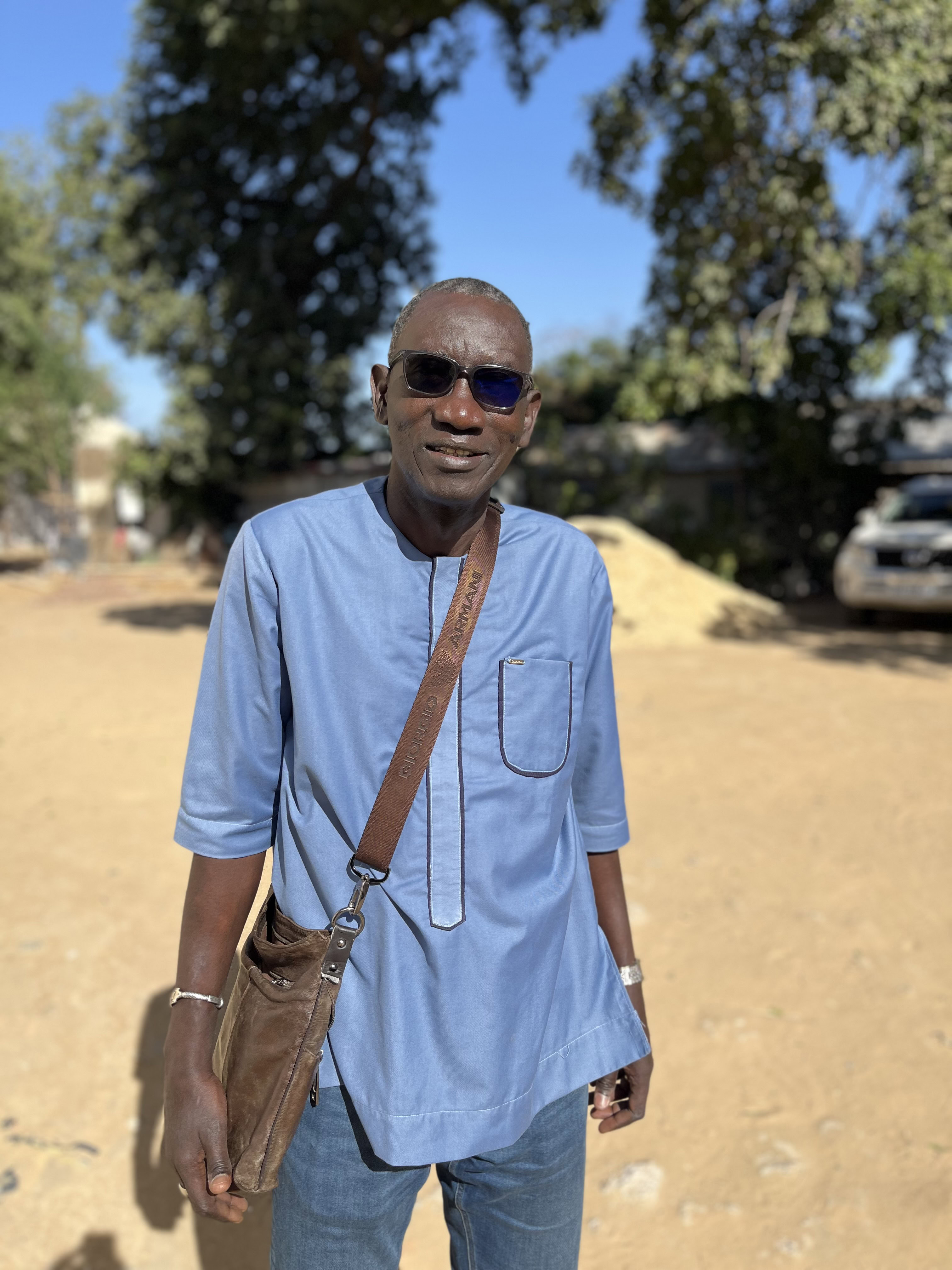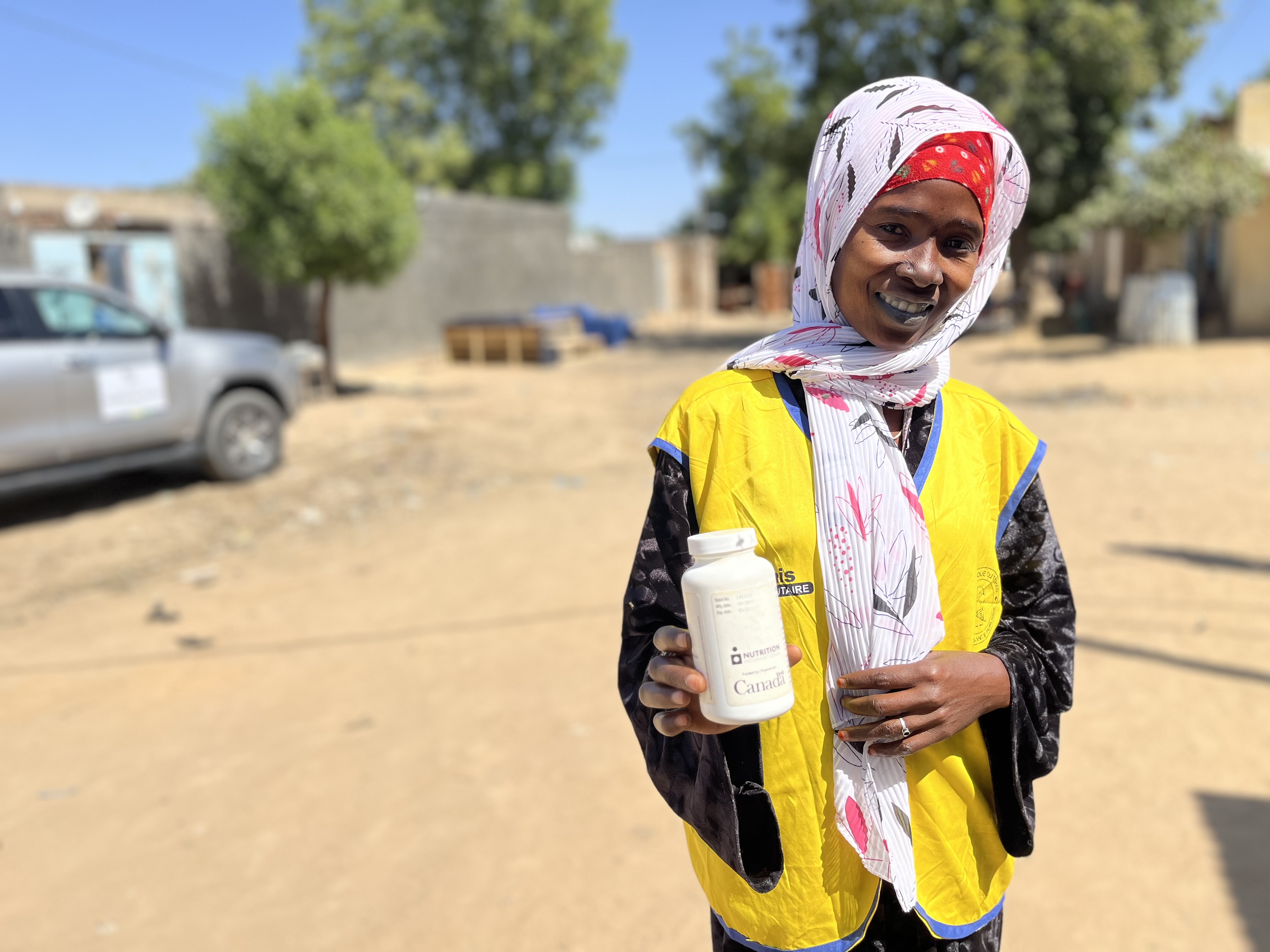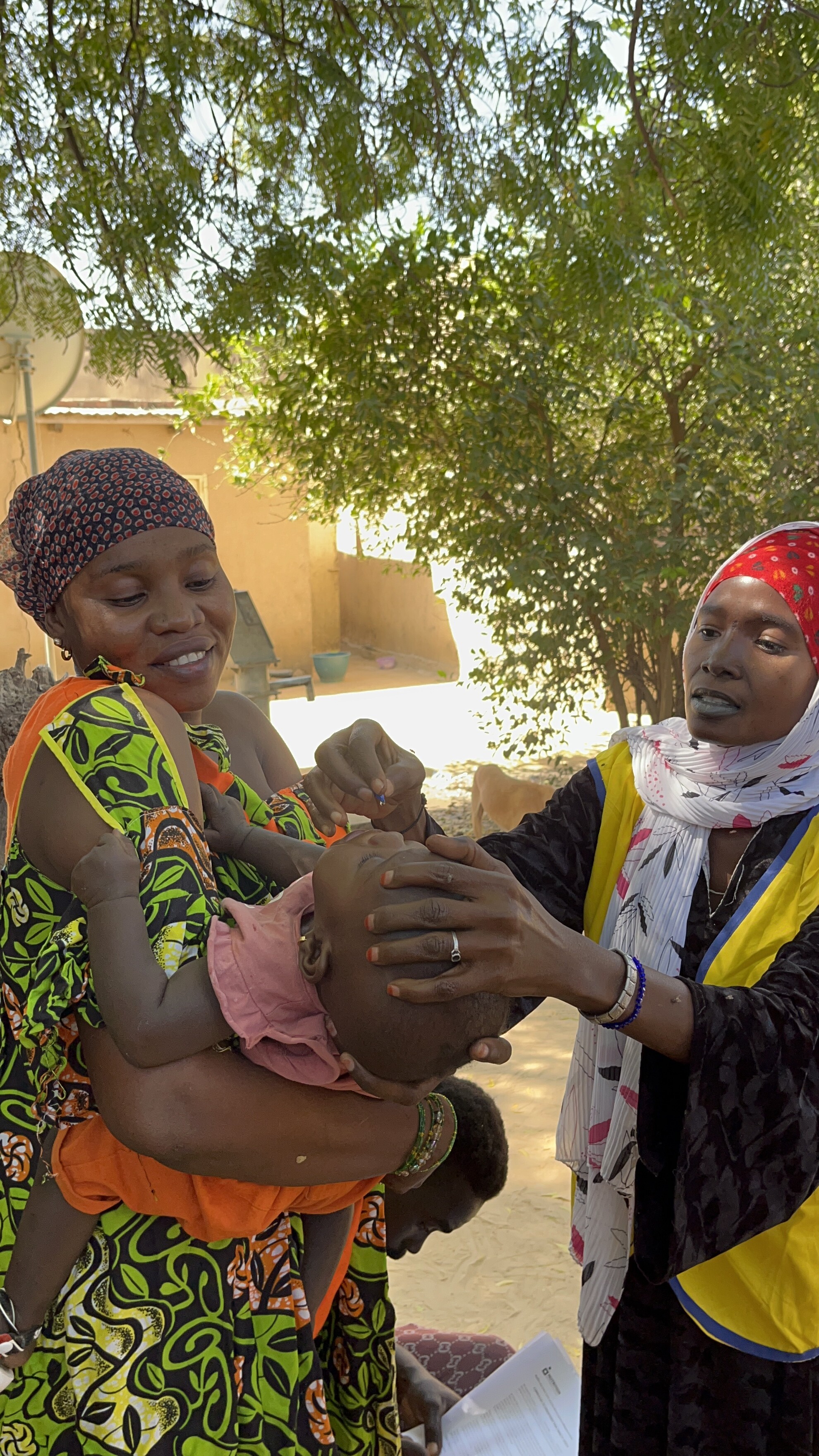Field Stories
Go door-to-door to deliver vitamin A supplementation in remote areas in Bangladesh
September 24, 2024
WP_Term Object
(
[term_id] => 49
[name] => Field Stories
[slug] => all-field-stories
[term_group] => 0
[term_taxonomy_id] => 49
[taxonomy] => news-category
[description] => Discover the personal stories of people whose lives have been impacted by better nutrition, and those working tirelessly to deliver it.
[parent] => 0
[count] => 181
[filter] => raw
)
Q&A with a leader in nutrition and child survival
Nutrition International’s vitamin A supplementation program in Chad is saving lives by addressing the adverse health impact of vitamin A deficiency in one of the world’s most challenging contexts. We spoke with the project director to learn more about their journey and the program’s impact.
Posted on December 10, 2024
The Nutrition International team in N'djamena, Chad during the vitamin A campaign in November 2024. Ndao (far right) and team provide extensive support pre and post campaign, but also real-time technical assistance during the campaign to strengthen campaign delivery.
With extensive experience managing nutrition and development programs, Ibrahima Ndao is leading efforts to combat child mortality in Chad through vitamin A supplementation (VAS). As the project director for Nutrition International, he is at the forefront of a lifesaving initiative to provide children aged six to 59 months with high-dose vitamin A every six months, protecting them from preventable diseases and safeguarding their survival. Funded by GiveWell, the project is delivering critical technical assistance to strengthen service delivery to reach every child.
Operating in a context marked by high vulnerability, displacement and conflict, Ibrahima and his team work closely with the Ministry of Health in Chad, particularly the Directorate of Food and Applied Nutrition, to leverage their expertise to overcome logistical and systemic barriers, delivering measurable outcomes. In this Q&A, Ibrahima shares his journey, the unique challenges of working in Chad, and the innovative approaches that are driving the program’s success.
Read on to learn how Nutrition International is making a difference and why this work matters to those involved.

I am a trained food technology engineer and hold a master’s degree in nutrition and health. Between 2010 and 2011, I participated in a professional development program at Tulane University’s Department of International Health and Development in the United States.
I began my career with UNICEF in Senegal, then worked with the Rural Micro-Enterprise Promotion Project, funded by the International Fund for Agricultural Development (IFAD), where I served as a regional office manager in rural Senegal.
In 2007, I joined Nutrition International, where I have worked for nearly 15 years, holding various positions to support universal salt iodization, food fortification, and VAS programs. In 2022, I was invited to take on the role of project director in Chad.

Nutrition International operates in Chad to ensure that children aged six to 59 months receive two annual doses of vitamin A supplements through biannual campaigns. We also support post-event coverage surveys (PECS) after each campaign.
As the project director, I am the main focal point for Nutrition International’s programming in Chad. My role involves ensuring the project is implemented in line with the organization’s vision, mission and values. I am responsible for achieving quality results within agreed timelines, supervising the team, and managing relationships with the government and other partners.
Vitamin A supplementation is a vital public health intervention to protect children from vitamin A deficiency. This deficiency makes them vulnerable to preventable diseases and death. Vitamin A strengthens their resistance to illnesses such as measles and diarrhoea, reduces the risks of stunting, and protects against vision loss.
It is considered one of the most cost-effective interventions for reducing child mortality. In Chad, where child mortality rates are among the highest in Africa, VAS is essential.
Chad is one of the world’s poorest countries and faces a number of challenges. This year, severe flooding has caused significant damage, including loss of life, destruction of homes and ruined crops.
“What motivates me is the opportunity to contribute to saving children’s lives. As long as I have this chance, I will continue to dedicate myself to this work.
— Ibrahima Ndao, Project Director, Chad, Nutrition International
Moreover, Chad is surrounded by conflict-affected countries: Libya, Sudan, and the Central African Republic. It also suffers from attacks by Boko Haram; dozens of people recently lost their lives in a military base attack near Lake Chad. These crises have led to massive population displacements and an influx of refugees.
Finally, some areas in Chad are difficult to access, complicating the organization of supplementation campaigns. These factors make Chad’s context particularly challenging.
Before 2021, VAS campaigns were irregular in Chad. For these campaigns to significantly impact child health and survival, they must occur twice a year, with an interval of four to six months.
Since the second half of 2021, Nutrition International has provided technical and financial support to the Ministry of Health to organize regular, biannual national campaigns. We also provide the full national supply of vitamin A capsules to Chad, funded by Canada, and in partnership with UNICEF.
We work closely with the DANA (Direction de l’Alimentation et de la Nutrition Appliquée) to plan these campaigns. This involves preparing training materials, data collection tools, micro-plans, budgets, and commodities distribution plans. Additionally, we provide logistical and financial support for field teams and supervision.

Our approach focuses on two main strategies:
We also prioritize building strong partnerships with the government and other stakeholders.
There is no discrimination in access to VAS. We strive to reach all children, whether in homes, schools, churches, mosques, refugee camps or markets.
PECS results show that 95% of those responsible for children are women. Targeted awareness raising activities for these caregivers needs to be considered to be an effective strategy to strengthen children’s access to vitamin A.
Here are three main lessons:
These lessons can be applied in other countries organizing VAS campaigns.
What motivates me is the opportunity to contribute to saving children’s lives. As long as I have this chance, I will continue to dedicate myself to this work.
Learn more about our work in vitamin A supplementation.